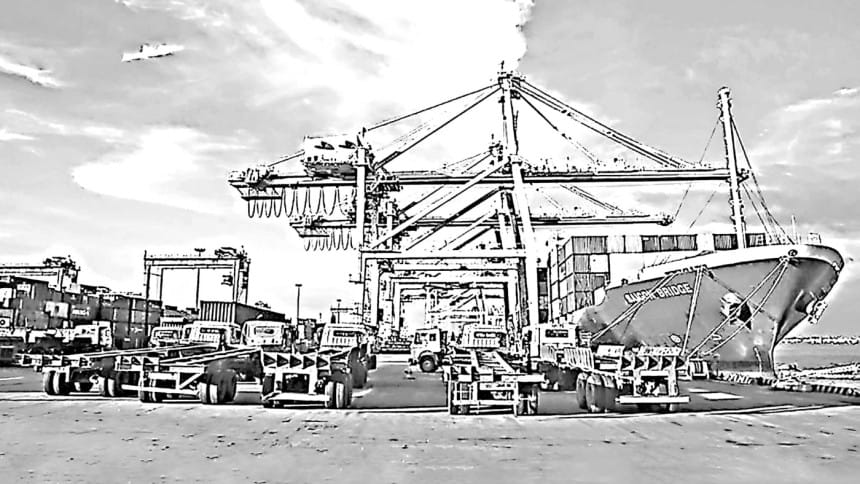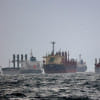Claim for total loss under marine insurance policy

International trade largely depends upon the shipping industry. Around ninety percent of traded goods are transported around the world through sea. However, a sea voyage is not always smooth or safe. There are many cases where the vessels do not reach their destination. Despite taking safety measures, accidents happen due to weather conditions, collisions between ships, groundings, allisions, fire, piracy, breakdown of equipment and other navigational issues. The losses suffered by the ships are mainly categorised as partial and total loss.
In marine insurance a total loss may either be an actual total loss or a constructive total loss. As Özlem Gürses comments in Marine Insurance Law (2015), "both are equally total losses, that is, the assured is entitled to claim for a loss of the whole subject matter insured".
As per Marine Insurance Act 1906 of the UK, the actual total loss means the vessel/ship is destroyed, damaged, or ceases to exist. Constructive total loss means when a vessel cannot be recovered from the loss due to unavoidable circumstances. In constructive total loss, the cost of recovery of the insured subject-matter is more expensive than the value of the actual subject-matter. That is why such losses are treated as total losses. The ship-owners take precautions to cover themselves against such huge losses through contracts of insurance. A contract of marine insurance is a contract where the insurer agrees to take the risks arising out of marine adventure and indemnify the assured against the contracted risks. The risks are pre-contracted and pre-conditioned. Both parties mutually agree upon the risks.
In marine insurance ship-owners, charterers and cargo owners have different kinds of insurance requirements. The marine insurance usually covers Hull (ship's body) and Machinery (H&M), freight, ship's liabilities, and cargo. Each type of subject-matter has its own insurance coverage.
In cargo insurance, more than one party is involved. The cargo of the vessel belongs to a third party. In a common situation, the owner of the cargo arranges the insurance cover for the cargo to protect them against any kind of danger. Though there are many types of marine insurances, practically a good many insurers and insurance policies can be involved in one incident.
Insurance policy comes into play when an incident occurs. To claim under the policy both assured and the insurer have their obligations. Depending upon how the parties perform their duties, the parties will be liable or entitled to the insurance claim.
As an example, in case where total loss is claimed by the cargo owner due to sinking of the vessel, the obligation of the assured to claim under the insurance policy is to submit original insurance policy, original bills of lading, shipping documents, notice of abandonment, note of protest of masters, copy of L/C (letter of credit), vessel's classification record, survey report, casually report, and media report.
The Marine Insurance Act of 1906 mentions the requirement of the notice of abandonment to the insurer. This notice serves as the declaration of the fact that the insured has abandoned all the interest left in the insured vessel concerning the claim of total loss. If the notice is not served, the claim will be treated as partial loss, instead of total loss.
Now the question arises as to how the notice of abandonment be issued, in cases where the ship sinks at High Sea along with the crew or in cases where the ship sinks, and the crew members of the ship evacuate the ship in emergency. The realistic approach is if the whole ship is destroyed and the crew members lose their lives in the incident or they leave the vessel in emergency, there would be no one left to issue such notice.
The master has an important position of responsibility along with the carrier and the ship-owner. They are responsible to oversee and to ensure seaworthiness of the vessel. If not, it is a breach under the International Safety Management (ISM) Code. Additionally, the ship-owner or the carrier needs to comply with the International Convention for the Safety of Life at Sea (SOLAS) convention and must obtain safety management certificates (SMC) and documents of compliance (DOC). In absence of these documents, the insurance cover may be ceased.
It is expected in marine insurance, that the ship-owners must always act as if there were no insurance, and the ship-owners must take every possible action to ensure the safety of the vessel.
In Bangladesh, there is no specific law that addresses marine insurance. Under Insurance Act 2010, all kinds of insurance, including marine insurance, are covered. In the end, in case of total loss when the ship is destroyed, the assured can take certain measures to mitigate the loss and to claim insurance coverage. If the assured takes precautions as a prudent uninsured person to safeguard the insurable object i.e., the ship or the cargo, the insurer will reimburse the insurance claim to the assured under appropriate circumstances.
In case of claim of total loss due to sinking of ship along with entire cargo on boat, the cargo owners may get relief through the insurance mechanism if they act promptly and prudently to safeguard the vessel as they would have acted in absence of any insurance contract and as per the terms of their contract with the insurer to mitigate further losses specifically in terms of suing the concerned party to recover their loss and fulfilling the obligation mentioned under the insurance policy. If the assured timely fulfilled all their obligations under the insurance policy, they are entitled to receive the money as promised under the insurance policy.
The writers are lawyers of mclaw services, being the head of the chambers and apprentice lawyer of mclaw services, respectively.

 For all latest news, follow The Daily Star's Google News channel.
For all latest news, follow The Daily Star's Google News channel. 








Comments